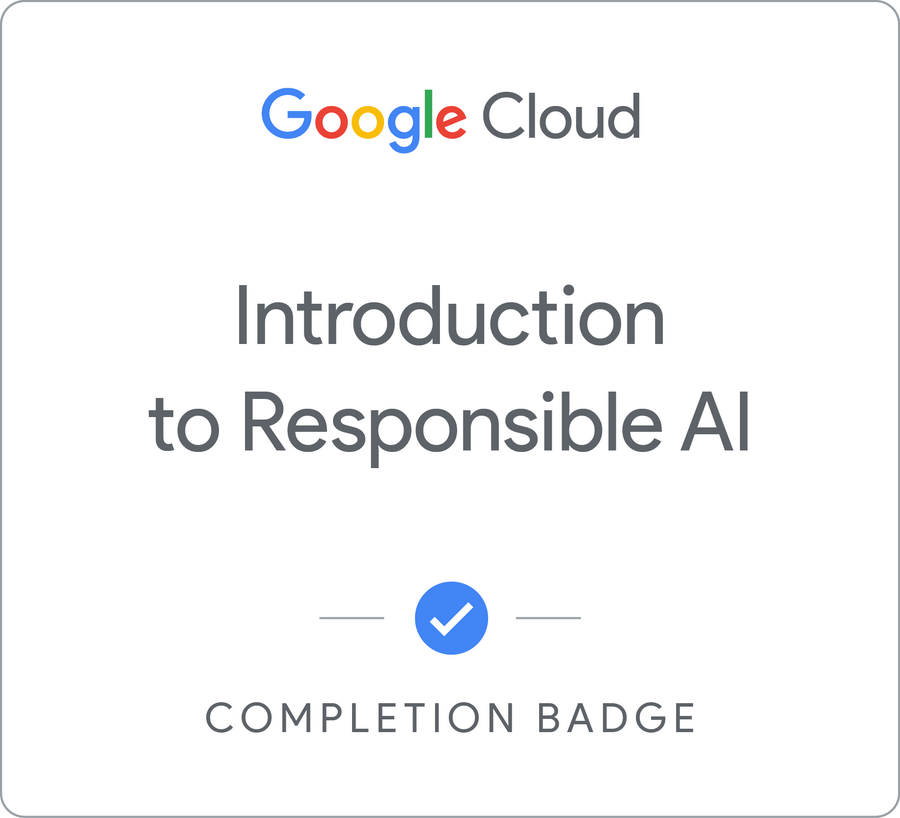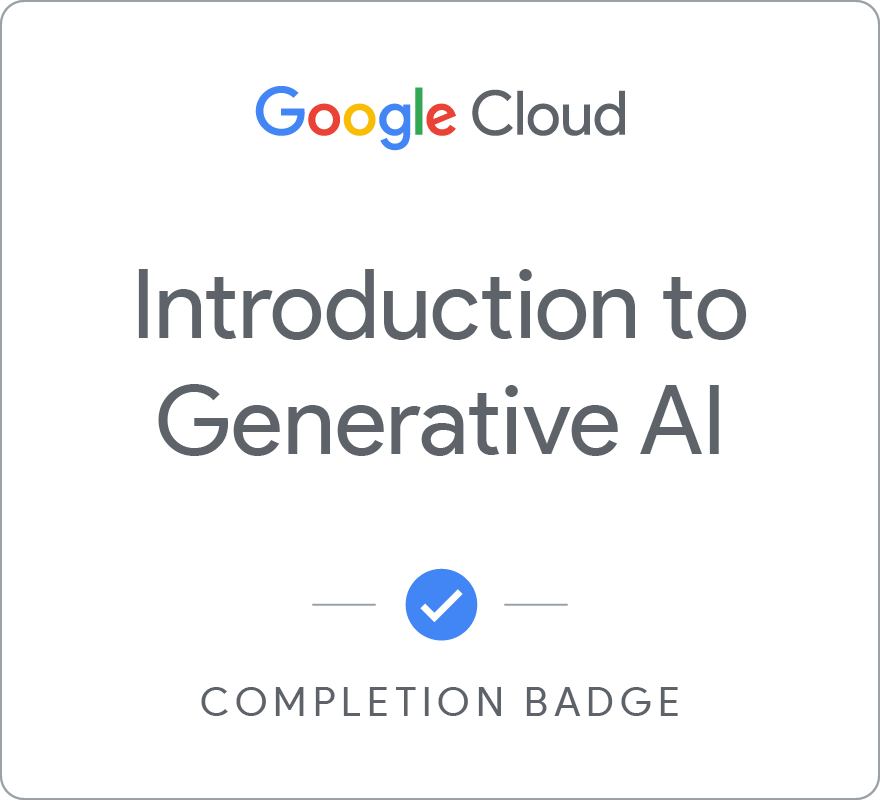What you will learn?
30-minute interactive video lesson
Downloadable resources for further reading
Final quiz to test understanding
Badge upon course completion
About this course
In the "Introduction to Responsible AI" course, you'll explore the essential principles and practices behind creating ethical and responsible artificial intelligence (AI) systems. This introductory-level microlearning course offers insights into why Google has implemented AI principles, the need for responsible AI practices within organizations, and how every stage of a project impacts responsible AI development. You’ll also be introduced to Google’s 7 AI principles and learn how to align AI with an organization’s values.
This quick, 30-minute course will provide you with a solid understanding of responsible AI practices, and upon completion, you’ll earn a badge to showcase your new knowledge and skills.
Access Directly on
Requirements
A computer or mobile device with internet access.
Basic knowledge of technology concepts is helpful but not required.
A curiosity to learn about responsible AI practices.
Related Courses
FAQ
Comments (0)
Definition and significance of Responsible AI.
Real-world examples of how AI can affect lives positively or negatively.
The growing need for ethical guidelines in AI development.
Understanding how Google's AI principles guide responsible innovation.
How these principles can be applied to AI projects in other organizations.
Practical examples of AI principles in action.
AI has the power to shape society and business in profound ways. From influencing job markets to reshaping economies, the decisions made by AI developers today will impact the world of tomorrow. This section covers the broader implications of AI on society and the importance of integrating ethical considerations into every stage of AI development.
In this section, we will discuss the practical steps organizations can take to ensure Responsible AI throughout the design and execution of projects. This includes creating multidisciplinary teams, using tools to detect bias, and engaging in continuous evaluation of AI systems.
You’ll also find real-world case studies of organizations that have implemented Responsible AI in creative and effective ways. These case studies demonstrate the flexibility of AI and how it can be designed to prioritize both business outcomes and ethical considerations.







